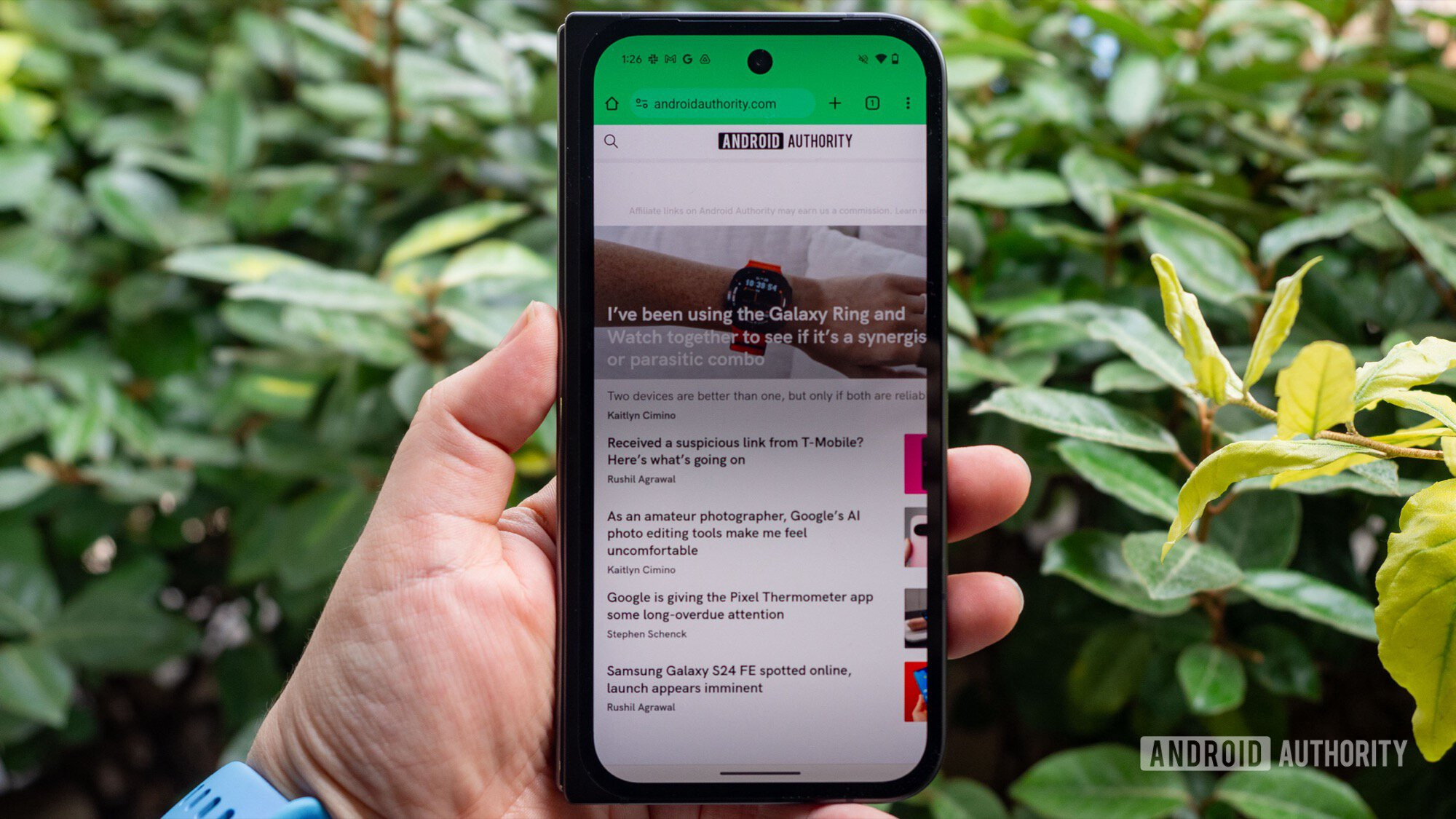Affiliate links on Android Authority may earn us a commission. Learn more.
Google is testing a new version of Chrome for Android with extensions support

- Google is working on a new version of Chrome for Android that supports browser extensions.
- Specifically, the company is experimenting with “desktop” builds of Chrome for Android.
- These “desktop” builds are currently intended for Chromebooks as they transition to use more parts of Android, but there’s hope the work will benefit mobile devices, too.
There are a lot of web browsers available for Android, but the one most people use is Chrome for Android. The Android-optimized version of Google’s Chrome browser is preinstalled on most Android devices and is fast, easy to use, and has a lot of features. One big feature that Chrome for Android has been missing all these years, though, is support for browser extensions. Google finally appears to be working on a version of Chrome for Android that supports browser extensions, but there’s a catch: it likely won’t be available for mobile devices.
If you want to be technical, it’s already possible to use Chrome extensions on Android, but you’ll have to download a third-party Chromium-based browser to do so. That’s because Google decided way back to not add extension support to mobile versions of Chrome, likely to limit the number of people installing Chrome extensions to block ads on their Android phones. Whether that decision was successful is debatable given the popularity of ad blocking apps for Android, but in any case, this decision shut down the ability to install other useful browser extensions.
Since browser extension support isn’t something most people come to expect from mobile web browsers, though, there hasn’t been much pressure on Google to reverse this decision. However, browser extensions are a staple of desktop web browsers, so Google really has no choice but to support them on desktop operating systems like its own Chrome OS.
Back in June, Google announced that Chrome OS would become more like Android by using large parts of the latter’s tech stack. At the time, Google said that Chrome OS will start using tech like the “Android Linux kernel and Android frameworks.” Since that announcement, we’ve already spotted Google working on a new branch of the Android Common Kernel aimed at Chrome OS devices (android15-6.6-desktop) as well as a common bootloader for Android, Chrome OS, and even Fuchsia (Generic Bootloader).
Recently, we’ve learned that Google is also working on a new version of Chrome for Android that is aimed at “desktop” devices like Chromebooks. This suggests that Google wants to unify Chrome builds between Android and Chrome OS, with the main differentiation being what form factor a particular version is available for. This new version of Chrome for Android — currently referred to as Desktop Android — is also getting support for browser extensions in order to have feature parity with existing versions of Chrome for Chrome OS.
Google has already submitted multiple patches related to the “Desktop Android” project to the Chromium Gerrit. Many of the patches are aimed at adding extensions support to this new version of Chrome for Android. On a bug created to track this effort, a Google engineer working on the Chromium project confirmed that one of the new features in Desktop Android is extensions support. However, the engineer also mentions that “any work related to mobile platforms is explicitly out-of-scope,” suggesting extensions support still isn’t planned for regular versions of Chrome for Android.

However, that doesn’t mean there isn’t any hope for mobile users. Desktop Android Chrome builds are compatible with regular Android devices, after all. You can already download and install them on your own Android device, although there’s no point in doing so right now since extensions support isn’t working yet.
We don’t know if Google plans to enable browser extension support in regular versions of Chrome for Android anytime soon, but the fact that it’s now laying the groundwork to make it possible has us excited. The timing is also curious given that Google recently began phasing out old extensions with the move to Manifest V3, which many have decried as an anti-adblocking move. We’ll keep an eye on this Desktop Android project to see if it ever leaves its experimental status, and if so, whether its extensions changes come to regular versions of Chrome for Android, too.